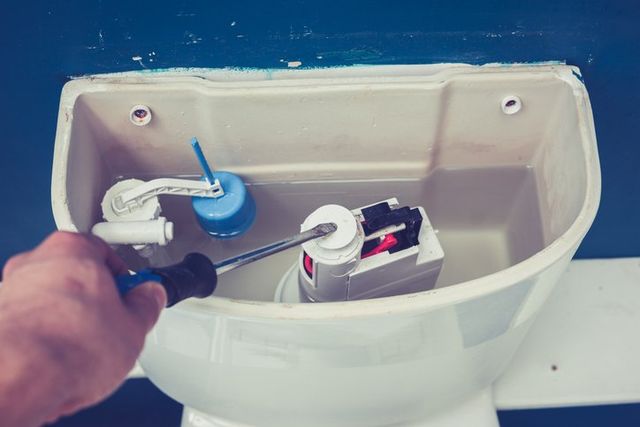Handling the Frequently Encountered Water Heater Emergencies
Handling the Frequently Encountered Water Heater Emergencies
Blog Article
In this article below you might get additional good points involving Is Your Water Heater Leaking?.

A water heater is just one of one of the most essential fundamental devices that can be found in a residence. With hot water heater, you don't need to go through the tension of heating water manually each time there is a need to take a bath, wash, or the recipes. Nonetheless, there is constantly a possibility that your water heater would break down just like most mechanical devices.
It is necessary to note any type of little breakdown and also tackle it rapidly prior to points get out of hand. A lot of times, your water heater begins to malfunction when there is an accumulation of debris as a result of constant usage. As a precaution, periodic flushing of your water heater is advised to prevent sediment accumulation and prevent practical failing.
Typical hot water heater emergencies as well as just how to handle them
Leaking hot water heater tank.
A leaking container could be an indicator of corrosion. It might trigger damages to the flooring, wall surface and also electrical devices around it. You could also go to danger of having your apartment or condo swamped. In this scenario, you should switch off your hot water heater, permit it to cool off, and carefully seek the source of the issue. At times, all you require to do is to tighten a couple of screws or pipe connections in cases of small leaks. If this doesn't work as well as the leak continues, you could require to utilize the solutions of a professional for an ideal substitute.
Fluctuating water temperature.
Your water heating unit can start generating water of various temperature levels generally ice cold or hot warm. There could be a demand to replace either the home heating or the thermostat device of your water heating unit.
Too little warm water
Taking care of a not enough supply of hot water can be irritating. It might be that the water heater can not sustain the warm water demand for your house. To handle this problem, you could try to change your heater's temperature level dial and also wait on a couple of minutes. You can ask for the aid of a specialist plumber if the trouble lingers. Conversely, you could update your hot water heater to one with a bigger capability.
Tarnished or stinky water
When this takes place, you require to know if the concern is from the storage tank or the water resource. If there is no amusing smell when you run chilly water, then you are particular that it is your water heater that is malfunctioning. The stinky water can be created by rust or the buildup of germs or debris in the water heating unit tank.
Final thought
Some homeowners neglect little warning as well as minor faults in their hot water heater unit. This just results in more damage and also a possible complete break down of your appliance. You must take care of your water heater mistakes as soon as they come up to prevent more costs and also unnecessary emergency troubles.
With water heating units, you do not need to go through the tension of home heating water manually every time there is a need to take a bath, do the washing, or the recipes. Your water heating system might start creating water of different temperature levels generally ice scalding or cold warm. It may be that the water heater can not sustain the hot water need for your apartment or condo. If there is no funny scent when you run chilly water, then you are particular that it is your water heating unit that is faulty. The smelly water can be caused by corrosion or the accumulation of bacteria or debris in the water heating unit tank.
Common Water Heater Issues and What You Should Do
What Type of Water Heater Do You Have?
Before we begin it’s first important that you identify the type of water heater you have on your property. There are two main types of water heaters out there: conventional and high efficiency.
Both of these types of products typically use either gas or electricity to heat power. There are also solar water heaters that use a thermal collector on the roof or yard to heat the water.
While these models are not as common, they can cut heating costs in half. In this article, we will focus on conventional and high efficiency.
How Do My Electric and Gas Water Heater Work?
Though they look similar, electric and gas water heaters work very differently. It’s important to know their basic function because often problems can be specific to the heating source.
In the electric model, a thermostat on the side of the machine detects the temperature of the water in the tank. When the temperature needs to rise electricity flows to a heating element suspended in the water.
Gas models also use a thermostat device — typically with a mercury sensor at the tip and an additional sensor called a thermocouple. The thermocouple detects whether the pilot light is on and controls the flow of gas.
When the thermostat drops below the appropriate level gas is released which becomes ignited by the pilot light. The flame heats the bottom of the water tank which causes hot water to rise and cold water to drop.
This natural circulation continues until the water reaches the desired temperature. Then, the thermostat triggers the gas control valve to shut off the flow of gas.
What Are the Most Common Issues and How Do You Fix Them?
https://happyhiller.com/blog/common-water-heater-issues-and-what-you-should-do/

I ran across that content on Is Your Water Heater Leaking? when doing a search on the web. If you enjoyed reading our blog entry plz don't forget to pass it around. Bless you for your time. Visit again soon.
Secure timely emergency plumbing assistance. Report this page